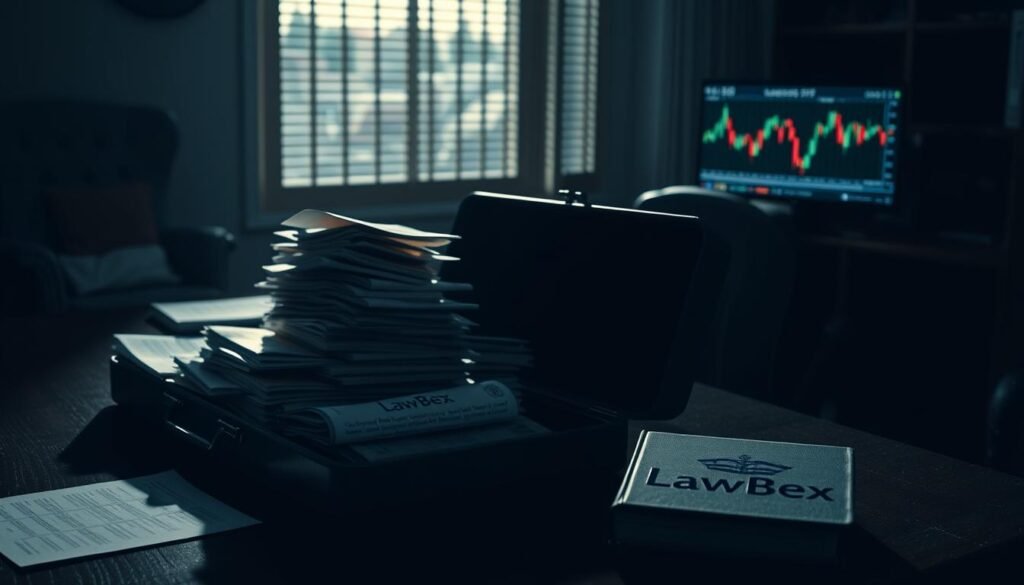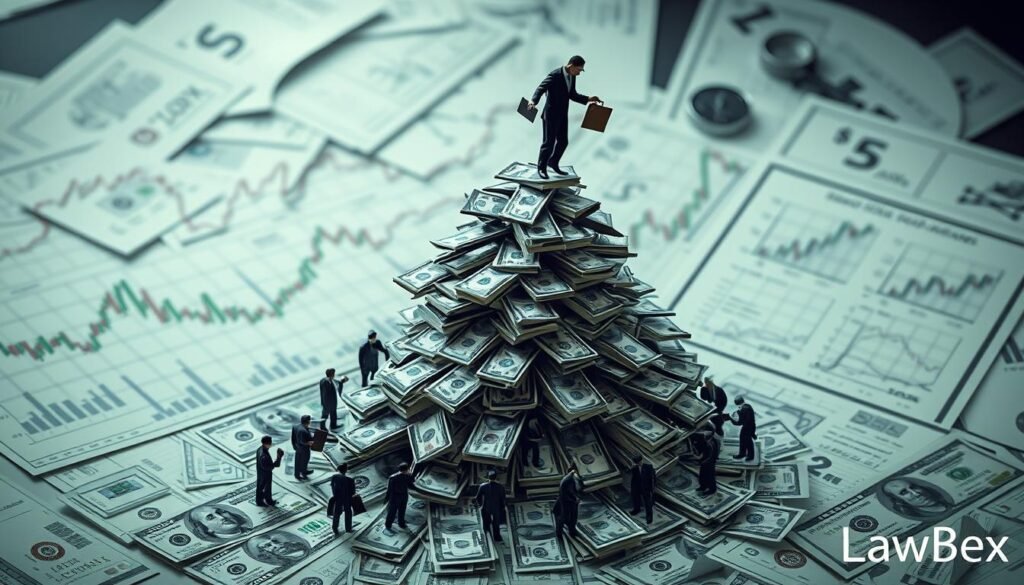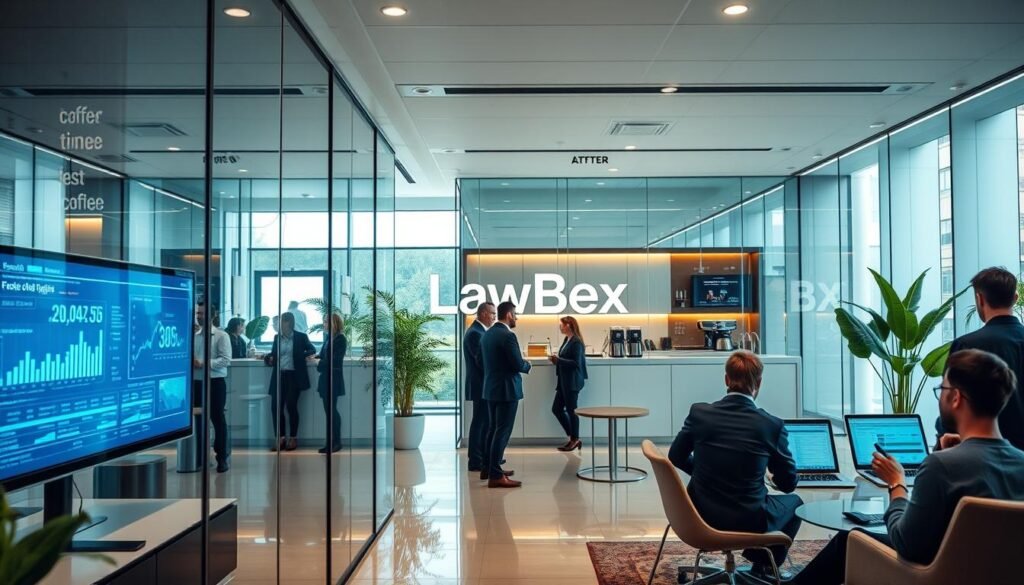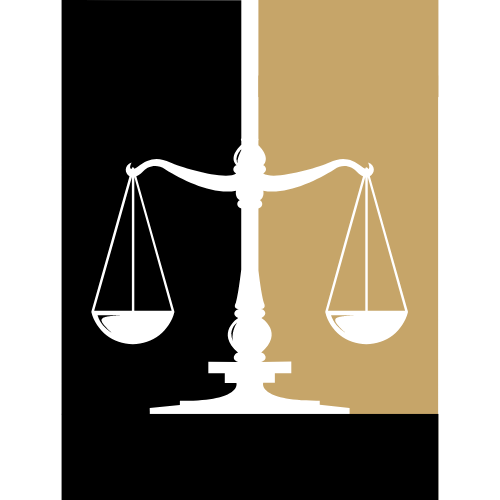In the world of business, profits and power are key. But there’s a darker side – white-collar crime. This issue affects many, from individuals to society. It’s important to understand white-collar crime and how to fight it.
Let’s explore this complex topic. We’ll find out why corporate leaders sometimes act unethically and illegally.
Key Takeaways
- White-collar crime is a complex and multifaceted issue that encompasses a wide range of corporate misconduct.
- Understanding the historical context and various forms of white-collar crimes is crucial to addressing this pressing problem.
- Corporate fraud, embezzlement, insider trading, and money laundering are just a few examples of the diverse white-collar crimes that threaten the integrity of the business world.
- Exploring the underlying causes, such as corporate culture and greed, can provide valuable insights into tackling white-collar crime.
- Effective prevention strategies, including robust corporate governance and whistleblower protection, are essential in mitigating the impact of white-collar crimes.
What is White-Collar Crime?
White-collar crime is a type of crime that involves money and is not violent. It’s done by people in business and government. These crimes use power or trust for personal gain. They are complex and hard to catch and prosecute.
Definition and Scope
In 1939, Edwin Sutherland coined the term “white-collar crime.” He described it as crimes by people of high status and respect in their jobs. Today, it includes corporate misconduct, financial crime, and other white-collar crime.
Historical Perspective
The early 20th century saw the rise of big corporations. This led to new chances for abuse and exploitation. Over time, these crimes have grown more complex, using advanced financial schemes and technology.
| Type of White-Collar Crime | Example |
|---|---|
| Corporate Fraud | Enron’s accounting scandal |
| Insider Trading | Martha Stewart’s insider trading case |
| Embezzlement | The Ponzi scheme orchestrated by Bernie Madoff |
These big cases show how white-collar crimes affect people, businesses, and the economy. It’s key to understand these crimes to fight corporate misconduct and financial crime.
Types of White-Collar Crimes
White-collar crimes are illegal acts in the business world. They include corporate fraud, embezzlement, insider trading, and bribery. These crimes harm both people and companies. Let’s look at each type in more detail.
Corporate Fraud: This fraud misrepresents financial info. It can inflate earnings or hide debts. It’s done to trick investors, creditors, or regulators.
Embezzlement: It’s when someone in trust takes money or assets. This is often done slowly over time.
Insider Trading: It’s when insiders trade on secret company info. This is illegal and can lead to big penalties.
Bribery and Corruption: Bribery is giving or taking something valuable for favors. Corruption is using power for personal gain.
Money Laundering: It hides the source of illegal money. It goes through stages like placement, layering, and integration.
Tax Evasion: It’s hiding income to pay less in taxes. This can lead to big fines and jail time.
Cybercrime: The digital world brings new crimes like cyber fraud and hacking. These can hurt businesses and individuals a lot.
These are just some white-collar crimes. As business changes, so do these crimes. We must stay alert and enforce laws well.
Corporate Fraud
Corporate fraud is a big problem in white-collar crime. It includes tricks like faking financial reports and stealing company assets. It’s important to understand this to fight it effectively.
Financial Statement Fraud
Financial statement fraud is when a company lies about its money. This can be to fool investors or the government. It can cause big problems, like making a company go bankrupt.
Asset Misappropriation
Asset misappropriation is when someone takes or uses company stuff without permission. This can be stealing money or using company secrets. It hurts the company’s money and reputation.
Why people commit corporate fraud is often because of greed or pressure. It’s also because some companies focus too much on making money now, not thinking about the future. To solve this, we need better rules, stronger company leaders, and a focus on doing the right thing.
We can make the business world more trustworthy by tackling the reasons for fraud. By stopping fraud before it starts, we protect everyone involved.
Embezzlement
Embezzlement is a serious white-collar crime. It involves taking property or funds that someone else trusted you with. This can be stealing company assets or using client money for personal gain. It’s a big betrayal of trust and a serious crime.
At the core of embezzlement is using power for personal gain. People in charge, like accountants or executives, might take money for themselves. This can hurt the company and those affected by the crime.
Getting caught in embezzlement can lead to big penalties. Fines and long prison sentences are possible. Law enforcement and regulatory groups work hard to stop this financial crime. They know how much it hurts businesses and investors.
Forms of Embezzlement
- Misappropriation of company funds or assets
- Fraudulent billing or expense reimbursement schemes
- Theft of inventory or other physical assets
- Diversion of client funds or investments
- Abuse of corporate credit cards or expense accounts
To fight embezzlement, we need a strong plan. This includes good internal controls, watching closely, and a culture that values ethics. By spotting signs of financial crime early and acting fast, companies can protect their assets and keep stakeholders’ trust.

“Embezzlement is the fraudulent appropriation of property or funds by someone to whom they have been entrusted.”
Insider Trading
Insider trading is when someone uses secret information to make money in the stock market. It’s a big crime that can hurt the financial system and make people lose trust in the markets.
Illegal Use of Inside Information
Insider trading means using secret info that others don’t know yet. This info can be about a company’s money, future deals, or big plans. People like company bosses or those with secret info can’t use it to make money for themselves.
Consequences and Penalties
Getting caught in insider trading can lead to big problems. The person caught might have to pay a lot of money, go to jail for a long time, or never work in finance again. In the U.S., the fines can be up to $5 million for people and $25 million for companies. They might also have to give back any money they made unfairly.
- Fines of up to $5 million for individuals and $25 million for organizations
- Imprisonment of up to 20 years
- Disgorgement of ill-gotten gains
- Permanent or temporary bans from the securities industry
It’s important to follow these laws to keep the financial markets fair and honest. This helps protect investors and keeps the system strong.
“Insider trading is an unfair and destructive practice that undermines the public’s trust in the financial markets. It is essential that we enforce strong penalties to deter this criminal behavior and preserve the integrity of our markets.”
Bribery and Corruption
Bribery and corruption are big problems worldwide. They hurt fair competition and make people lose trust in institutions. These crimes involve giving or taking something valuable to get an unfair advantage. We’ll look at different types of bribery and corruption and how laws try to stop them.
Understanding Bribery
Bribery happens when someone gives or takes something valuable for an unfair benefit. This can be money, gifts, or favors. It’s often used to get government contracts or to speed up customs checks.
Corruption: A Global Concern
Corruption is when power is used for personal gain. It can be embezzlement, nepotism, or using public money for personal use. Corruption weakens institutions and hurts trust, slowing down economic and social growth.
The Foreign Corrupt Practices Act
The United States passed the Foreign Corrupt Practices Act (FCPA) in 1977. It stops American companies from bribing foreign officials for business. The FCPA is a model for anti-corruption laws worldwide, helping to keep businesses honest.
To fight these crimes, governments and companies have set up checks and balances. They also protect whistleblowers and enforce laws strongly. Companies are now focusing on ethics, with strict compliance programs and a culture of honesty.
| Type of Bribery | Description | Consequences |
|---|---|---|
| Commercial Bribery | Payments made to private sector employees to influence business decisions | Fines, imprisonment, and reputational damage |
| Political Bribery | Payments made to government officials to influence public decisions | Severe legal penalties, including lengthy prison sentences |
| Facilitation Payments | Small payments made to government officials to expedite routine administrative processes | Prohibited in many countries, including under the FCPA |
By understanding bribery and corruption, and the laws against them, we can work towards a fairer business world.

“Corruption is a cancer: a cancer that eats away at a citizen’s faith in democracy, diminishes the instinct for innovation and creativity.”
– Joe Biden, Former Vice President of the United States
Money Laundering
Money laundering is a big financial crime. It hides where money came from. Criminals try to mix dirty money with clean money in banks and businesses.
Let’s look at how they do it. We’ll see their tricks to hide their money.
Stages of Money Laundering
The process has three main steps:
- Placement: First, they put the dirty money into the system. They might put it in banks or buy expensive things.
- Layering: Next, they make the money hard to follow. They move it around, use fake names, or hide it in other countries.
- Integration: Last, they mix the money with real money. They buy more things or invest it. This way, it looks like it came from a normal source.
Money launderers use many tricks. They hide money, use complicated deals, and find legal ways to hide their actions.
| Stage | Objective | Techniques |
|---|---|---|
| Placement | Introducing illicit cash into the financial system | Bank deposits, real estate purchases, luxury goods |
| Layering | Obscuring the money’s trail | Transferring funds through multiple accounts, establishing offshore entities |
| Integration | Integrating laundered funds into the legitimate economy | Purchasing assets, investing in businesses |
Knowing how money laundering works helps us fight it. We can spot their tricks and keep clean money safe.
Tax Evasion
Tax evasion is a big financial crime. It means not paying taxes you owe to the government on purpose. This is unfair and hurts the tax system and everyone who pays taxes.
There are many ways to evade taxes. Some people don’t report all their income or claim too many deductions. Others hide money in secret accounts or use tricky schemes. These actions can lead to big legal and financial problems.
The Impact of Tax Evasion
Tax evasion hurts the government and the public. It means less money for schools, roads, and healthcare. This makes honest taxpayers pay more and can make the budget deficit bigger.
It also makes people doubt the fairness of the tax system. This can slow down the economy and make it harder for businesses to grow.
Combating Tax Evasion
- Strengthening tax enforcement and auditing procedures to identify and prosecute instances of tax evasion.
- Improving transparency and information-sharing between tax authorities, both domestically and internationally, to crack down on cross-border tax evasion schemes.
- Enacting stiffer penalties and harsher sentences for those convicted of tax evasion, serving as a deterrent to potential offenders.
- Enhancing financial education and promoting a culture of tax compliance, encouraging citizens to fulfill their civic duty and pay their fair share.
We need to tackle tax evasion head-on. By doing so, we can keep our tax system fair and help everyone prosper.
| Type of Tax Evasion | Description | Potential Consequences |
|---|---|---|
| Underreporting Income | Failing to report all earned income to the tax authorities. | Fines, penalties, and possible criminal charges. |
| Overstating Deductions | Claiming excessive or fraudulent deductions to reduce taxable income. | Repayment of underpaid taxes, plus interest and penalties. |
| Offshore Tax Havens | Hiding assets or income in foreign countries with lax tax laws. | Seizure of assets, hefty fines, and possible jail time. |
Tax evasion is a serious crime that hurts our tax system. By knowing how it works and its consequences, we can make taxes fairer for everyone.

Cybercrime
In today’s digital world, crimes have changed a lot. They mix white-collar crimes with cybercrime. Cybercrime includes many illegal acts done online, like hacking and data breaches. These crimes are hard to fight and need us to understand them better.
Types of Cybercrime
Cybercrime comes in many forms. Each has its own traits and effects. Here are some common types:
- Internet Fraud: Online scams and identity theft.
- Data Breaches: Stealing sensitive information without permission.
- Malware and Ransomware Attacks: Software that harms computers and demands money.
- Cyber Espionage: Stealing trade secrets and other important data online.
These crimes hurt our money, privacy, and security. It’s important to know how they change to fight them better.
| Type of Cybercrime | Description | Key Characteristics |
|---|---|---|
| Internet Fraud | Fraudulent schemes perpetrated through online platforms | Phishing scams, identity theft, online auction fraud |
| Data Breaches | Unauthorized access and theft of sensitive information | Corporate and personal data theft, exposure of confidential information |
| Malware and Ransomware Attacks | Malicious software designed to infiltrate and disrupt computer systems | System disruption, data encryption, and demands for ransom |
| Cyber Espionage | The theft of trade secrets, intellectual property, and other sensitive information through digital means | Corporate and government espionage, theft of valuable data |
As the digital world grows, so do the threats of cybercrime. We must stay alert and use strong security to protect our online world. This way, we can reduce the dangers of these crimes.
Ponzi Schemes
Ponzi schemes are a type of investment fraud that have plagued the financial world for decades. They are often called “pyramid schemes.” These schemes use money from new investors to pay “returns” to earlier ones, not real profits. This makes people think they’re investing in something good, but they’re really falling for ponzi schemes, financial fraud, and pyramid schemes.
How Ponzi Schemes Work
Ponzi schemes work in a simple way but can cause big problems. They promise high returns with little risk, making quick profits seem easy. But, the money is not invested. It’s used to pay “returns” to those who came before, making it seem like a smart investment.
As more people join, the scheme needs more investors to keep up the illusion. This cycle goes on until it crashes, leaving most investors with big losses. The people running the scheme face serious legal trouble.
“Ponzi schemes are a form of financial fraud that can have devastating impacts on individuals and the broader financial system. It’s crucial for investors to be vigilant and thoroughly research any investment opportunity before committing their hard-earned money.”
The effects of ponzi schemes are wide-reaching. They harm not just individual investors but also the financial health of communities and economies. Knowing about these scams helps protect us and our families.

The promise of quick profits is tempting, but we should be cautious. We need to be informed and watchful. This way, we can help stop financial fraud and keep the financial system safe.
Racketeering
Racketeering is a big problem in our society. It involves organized crime groups doing illegal things like extortion, money laundering, and bribery. The U.S. government created the RICO Act to fight this. It’s a strong law aimed at stopping racketeering and related crimes.
The RICO Act helps law enforcement take down criminal groups. It targets their money and structure. People or groups involved in racketeering can face serious penalties. This law has been good at dealing with racketeering’s complex issues.
Racketeering can happen in many ways, including:
- Extortion: Forcing people or businesses to pay for “protection” or face harm.
- Money laundering: Hiding where money came from to make it seem legal.
- Bribery: Giving or taking money to influence decisions and get unfair benefits.
The RICO Act is key in fighting organized crime. It has strong rules and penalties. This makes criminals think twice and helps law enforcement take down groups.
| Key Aspects of the RICO Act | Explanation |
|---|---|
| Pattern of Racketeering Activity | The RICO Act needs a “pattern of racketeering activity.” This means at least two related acts in 10 years. |
| Predicate Offenses | The RICO Act covers many crimes, like extortion, money laundering, bribery, and more. |
| Civil and Criminal Penalties | Breaking the RICO Act can lead to fines, losing assets, and long prison sentences. |
As we fight racketeering and organized crime, the RICO Act is crucial. It helps us take down criminal groups. This keeps our communities safe from their harm.
“The RICO Act has been a game-changer in the fight against organized crime, providing law enforcement with the means to target the very foundations of these criminal enterprises.”
Causes and Motivations
To understand white-collar crimes, we must look at what drives them. Corporate culture and personal greed are key. These factors often lead to unethical actions.
Corporate Culture: A Breeding Ground for Unethical Behavior
Corporate culture can either support ethics or encourage wrongdoings. When a company values profits over integrity, it sends a message. Employees might think it’s okay to bend rules for money.
This toxic culture can lead to crimes like corporate fraud, embezzlement, and insider trading.
Greed and Financial Pressure: The Alluring Combination
Greed drives many white-collar criminals. They want wealth, a certain lifestyle, or to beat others. This desire can make them justify unethical actions.
Also, the need to hit financial targets or please shareholders can lead to fraud. This includes fiddling with financial reports or taking company assets for personal use.
Knowing why white-collar crimes happen is key. It helps in creating a culture that values ethics and transparency.

“The true character of a society is revealed in how it treats its weakest members.”
| Factors Contributing to White-Collar Crimes | Potential Consequences |
|---|---|
| Corporate culture that prioritizes profits over ethics | Normalization of unethical practices, increased risk of fraud and other white-collar crimes |
| Individual greed and the desire for personal financial gain | Embezzlement, insider trading, and other forms of corporate misconduct |
| Pressure to meet aggressive financial targets or maintain a certain lifestyle | Manipulation of financial statements, asset misappropriation, and other fraudulent activities |
Consequences and Penalties
White-collar crimes cause big problems that go beyond the people involved. They can hurt finances, reputations, and society. The legal penalties for white-collar crimes are serious, with big fines and long prison sentences.
One big problem is the money lost. Frauds can cost a lot for investors, consumers, and companies. This can shake markets and make people lose trust in finance. Also, it costs a lot to investigate and prosecute these crimes, which is hard on taxpayers and the government.
White-collar crimes also hurt reputations. A big scandal can damage a company’s image. This can lead to lost trust, legal problems, and a hard time getting back on track.
The effects of white-collar crimes are wide-reaching. They can harm the economy and legal systems. The corporate misconduct impact can make people doubt the fairness of business. It’s important to keep the business world fair and open.
The legal penalties for these crimes are strict. They include fines, paying back money, and jail time. The punishment depends on the crime’s size and type. Offenders might also lose their professional licenses or face industry bans.
| Type of White-Collar Crime | Potential Penalties |
|---|---|
| Fraud | Fines, restitution, and up to 20 years in prison |
| Embezzlement | Fines, restitution, and up to 10 years in prison |
| Insider Trading | Fines, disgorgement of profits, and up to 20 years in prison |
| Bribery | Fines, restitution, and up to 15 years in prison |
While the legal penalties are tough, the real cost is much bigger. The white-collar crime consequences affect many, showing we need strong laws and ways to stop these crimes.
“The consequences of white-collar crime are not just financial; they can also be deeply personal and reputational. The damage done to the victims, both individual and institutional, can be long-lasting and difficult to repair.”
Preventing White-Collar Crime
To fight white-collar crime prevention, we need a plan that covers many areas. This includes making corporate governance stronger and creating a culture that values ethics. It’s also key to have good internal controls and protect whistleblowers to find and stop such crimes.
Corporate Governance
Good corporate governance is vital in stopping white-collar crimes. This means:
- Having clear and open policies and rules
- Having strong internal checks and audits
- Encouraging accountability and ethical choices at the top
- Training employees on compliance all the time
Whistleblower Protection
Protecting whistleblowers is a big part of stopping white-collar crimes. By making it safe for employees to report wrongdoings, companies can:
- Find and fix problems early
- Stop crimes from happening in the first place
- Show they really care about doing the right thing
Laws like the Sarbanes-Oxley Act in the U.S. help. They let employees report wrongdoings without fear of getting in trouble.
“Whistleblowers play a vital role in exposing corporate wrongdoing and protecting the public interest. Safeguarding their rights is essential for maintaining ethical business practices.”
White-collar crime in France, 2022: Overview of developments, trends, and prospects
WHITE-COLLAR CRIME IN FRANCE, 2022: OVERVIEW OF DEVELOPMENTS, TRENDS, AND PROSPECTS
Conclusion
White-collar crime is a big problem that affects many people and businesses. It’s important to understand the different types of corporate misconduct. This includes financial crimes and cybercrime. Knowing why these crimes happen helps us find better ways to stop them.
We need a business world that is honest and fair. Keeping the law is key. With strong rules, safe ways for whistleblowers, and a focus on doing the right thing, we can fight white-collar crime. This will help us trust our economy again.
The battle against white-collar crime never ends. It takes everyone working together: governments, police, business leaders, and citizens. If we stay alert and act fast, we can make a world where crime is rare. A world where honesty and fairness are the rule, not the exception.
